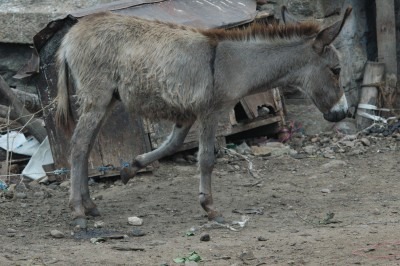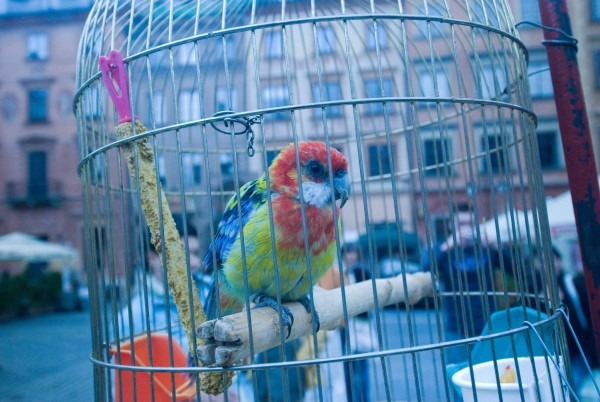Pope Francis’s “‘Encyclical Letter, Laudato Si’ Of The Holy Father Franciscus On Care For Our Common Home’” (“Given in Rome at Saint Peter’s on 24 May, the Solemnity of Pentecost, in the year 2015”), can easily be summarized by virtually any one segment of its 246 stanza entirety. We would suggest statement #71 as a fitting emblem:
71. Although “the wickedness of man was great in the earth” (Gen 6:5) and the Lord “was sorry that he had made man on the earth” (Gen 6:6), nonetheless, through Noah, who remained innocent and just, God decided to open a path of salvation.[1]
Even if the language is of salvation, of a “triune” God, and of the Lord – if interpreted through the insistence upon, or prescriptions of no faith, no religious orientation, not even the alleged neutrality of atheism; and forgetting the tired rhetorical schisms between politics, faith and science, in all “isms” – there remains in this provocative paean to the Earth an inherently good and viable embrace of all that transcends our personal biases.
Francis has effectively merged science, faith, transcendence, and a plethora of the trappings of Church history and catechism. Of the 172 citations, only three, relating to – Dante, Teilhard de Chardin and the late French philosopher Paul Ricoeur – are not explicitly Church authorities. Nonetheless, the breadth of citations encompasses speeches, historic and philosophical texts, and environmental injunctions from a broad and honest multiplicity of inaugurations, exchanges, and serious conferences (e.g., the Rio Summit 1992), from New Zealand to Asia, each of them in the same camp as what is conventionally thought of as engaged environmentalism; of compassion in action.
By invoking Noah, this inspired reverie by the Pope may be summarized in two words: Animal liberation, a fitting and massive Church tribute to the very Patron Saint of Ecology [2], Saint Francis himself. Church history shows Noah protecting the animals of the ark day and night for a year (Gen). In Rabbinic tradition, during that year at sea all the animals abstained from sex so as not to overpopulate what was a strictly formulated size of the vessel. Learned debates regarding the boat’s size were sustained prominently throughout the Renaissance and did not cease to fascinate the world’s audience until the time of Darwin, at which point historians let rest the uncertainties with respect to just how many representatives of each species might have found lodging with Noah.
Of course, the Pope is not the first to equate the killing of animals with humanity’s own incorrigible self-destruction. Back in November (8th) 1997, His All Holiness Ecumenical Patriarch Bartholomew, leader of some 300 million Greek Orthodox adherents, in speaking at an environmental symposium in Santa Barbara, declared boldly:
It follows that, to commit a crime against the natural world, is a sin. For humans to cause species to become extinct and to destroy the biological diversity of God’s creation… for humans to degrade the integrity of Earth by causing changes in its climate, by stripping the Earth of its natural forests, or destroying its wetlands… for humans to injure other humans with disease… for humans to contaminate the Earth’s waters, its land, its air, and its life, with poisonous substances… these are sins. [3]

Noah is said to have liberated animals from certain destruction: global annihilation brought upon biodiversity as a result of human greed, hubris, ignorance, vanity and violence, an only too real mythology – magnificently enshrined by such pictorial geniuses as the Flemish Renaissance master Jan Breughel the Elder. God is said to have forgiven Noah. And that forgiveness remained inchoate as a potent and viable template for the future of biology here on Earth.
Within such forgiveness is the corresponding injunction to do something towards renewal, the renaissance of life, the giving back of life, not just the taking of a precious gift, which has been our predominate penchant as a species, and as individuals.

This forgiveness gives every indication of our perception of some God-like force, whether one considers him/herself driven by faith, or by nothing; acting alone or in concert; a total narcissist or survivalist. It does not really matter anymore what characterization we choose as individuals with which to align ourselves. The writing on Earth’s walls are clear: each of us is zoologically related by birth to the biophilia that pervades that collection of forces and genes that gave us our birthright and self-consciousness, whether in the mind of a man, the man Noah, the Pope Francis, the readership – all of us.
It is our mission to join forces with those recipients of our intentions and actions. Every major ethical and indigenous tradition, going back at least some 70,000 years (to the cave of Shanidar 4 on Bradost Mountain in Iraqi Kurdistan) has honored the implicit conscience that accompanies the love of others, of nature, or physiolatry in ancient Greek. This Encyclical is but the latest, perhaps most hard-hitting of documents within that outstanding legacy we think of as our humanity… Continue reading.
The views and opinions expressed through the MAHB Website are those of the contributing authors and do not necessarily reflect an official position of the MAHB. The MAHB aims to share a range of perspectives and welcomes the discussions that they prompt.
